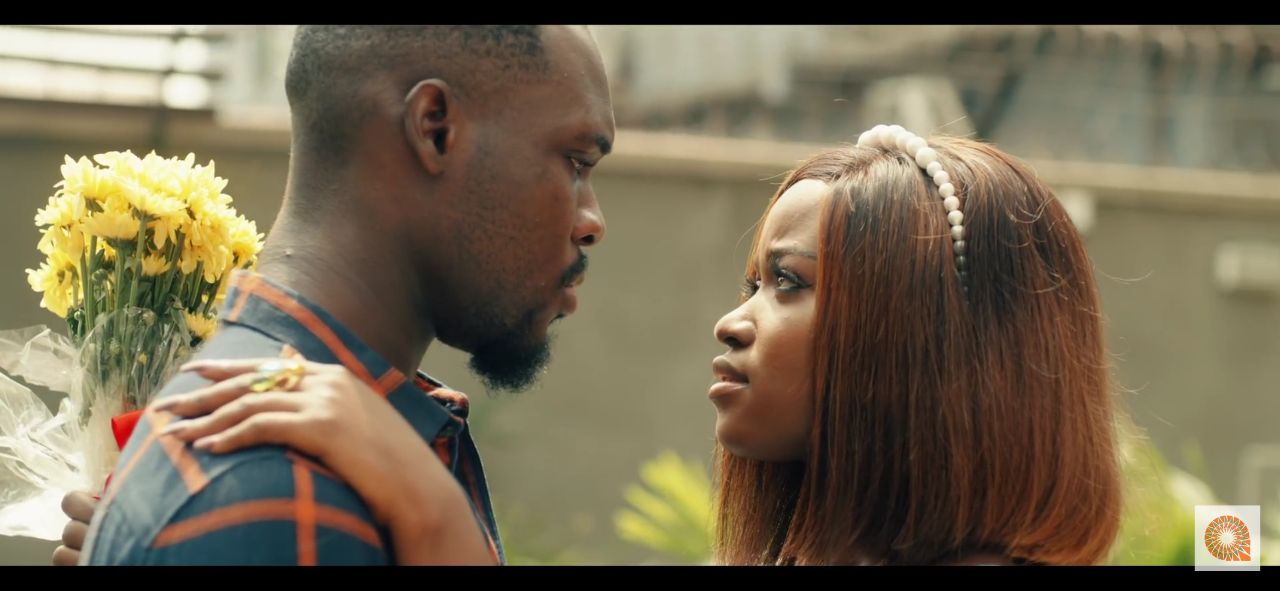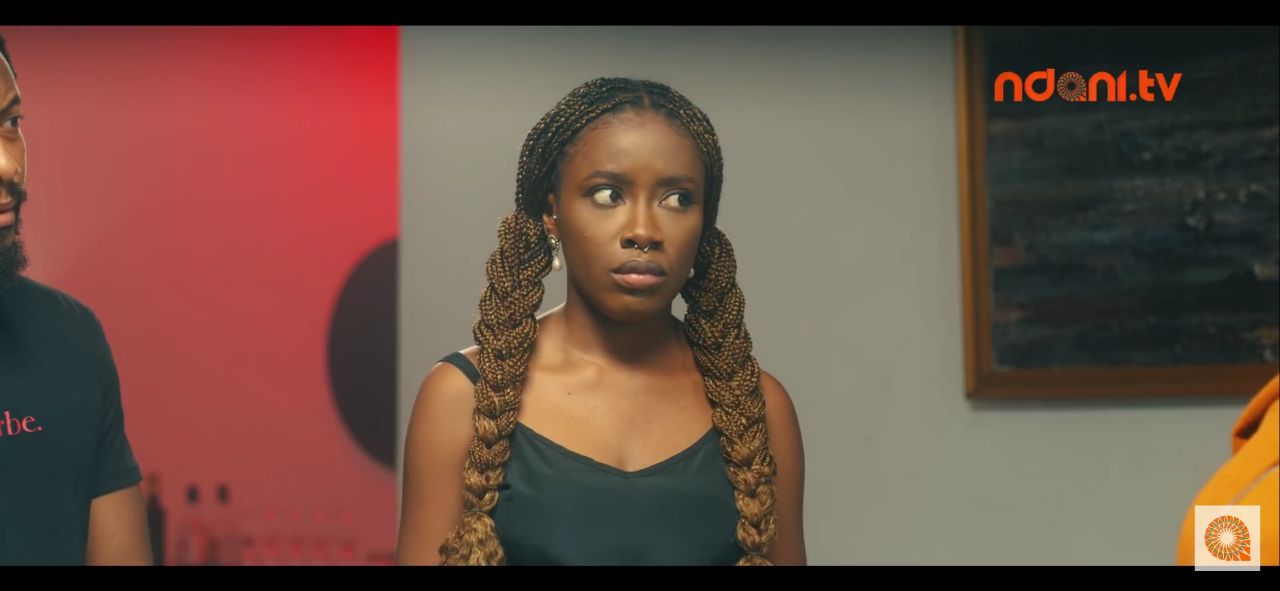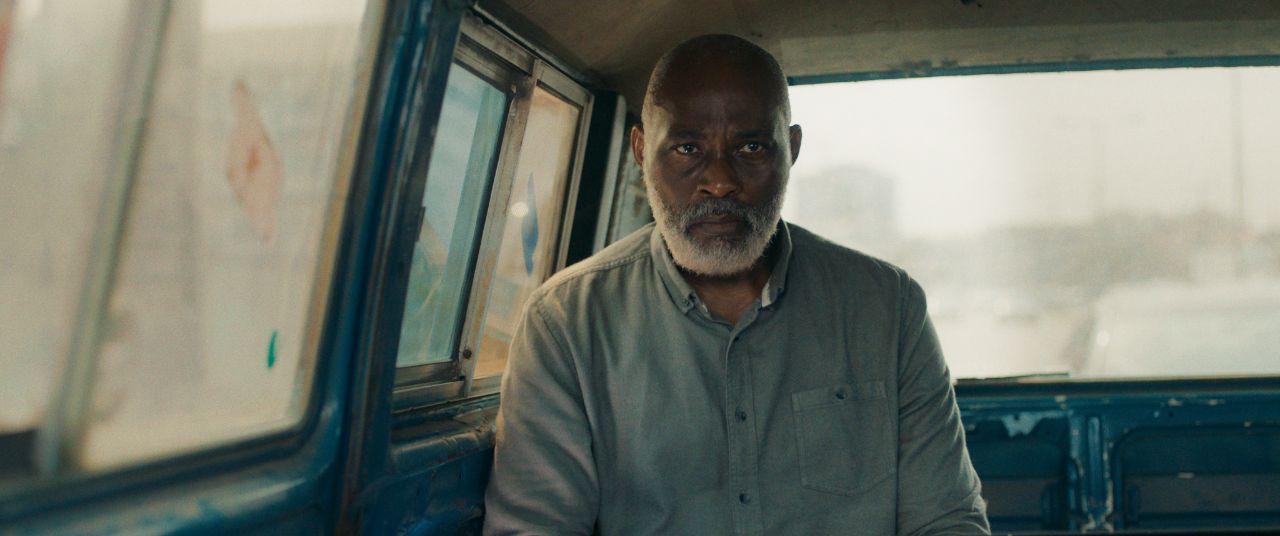In 2023, I was wide-eyed, heart filled with love for film, and ready to experience my first AFRIFF as I made my way to the opening night venue. To my surprise, the event was by invitation only, and I wasn’t allowed in. Still, I did get to see the glam of the red carpet in real time, even got a picture of Uche Jombo, who at the time was attending her 12th edition of the festival, as I came to find out in an AFRIFF 2025 interview with What Kept Me Up. Now, in 2025, and in its 14th edition, I attend with an all-access pass as I did the year before. Time truly does fly, doesn’t it?
AFRIFF 2025 took place from 2nd to 8th November in Lagos, with the theme, Rhythms of the Continent: The Afrobeats Film Movement. It sought to explore how African music culture, specifically Afrobeats and film, can intersect, and moved beyond just a film festival into a general culture industry-oriented space. The festival opened with 3 Cold Dishes, a pan-African title directed by Oluseyi Asurf, starring Osas Ighodaro, Fat Touré, Maud Guerard, Ruby Akubueze, and Wale Ojo.
(Click to Follow the What Kept Me Up channel on WhatsApp)
This year, the festival also introduced a dedicated film & content market, the AFRIFF Film & Content Market (AFCM), which ran from November 3-6 and was aimed at actors, filmmakers, distributors, and industry stakeholders. The event opened with a ribbon-cutting ceremony at Twin Waters with Minister of Art, Culture and Tourism, Hannatu Musa Musawa, AFRIFF founder Chioma Ude and a host of other dignitaries. Financial bodies, distribution and production companies, and service providers were well represented in their respective booths, ready to hear pitches from interested participants. Taking a walk around, you could see the eagerness of certain reps to speak to you, but the first day was for getting familiar with the environment. By the second day, people began to connect, it also helped that there were AFCM panel discussions simultaneously, so session breaks meant walking around the market and potentially stopping by one or two booths.

One of the key strengths of AFRIFF this year was the clearer push into the business side of film. By creating the AFCM, the organisers, spurred by the foreign streaming investment slowdown, showed more efforts into topics like distribution, monetisation, co-productions and crossborder partnerships. Panels to that effect covered topics such as Brazil–Nigeria film cooperation, music licensing in film (very relevant given the Afrobeats theme), and co-production treaties. These panels were graced with a range of different industry professionals from finance, Victor Orozco (Senior Economist with the Development Impact (DIME) department in the World Bank), Folajimi Alli‑Balogun (AVP, MBO Capital), to other experts in other sectors. The level of industry results from the inaugural film market, which Chioma Ude (in an interview with WKMUp on the red carpet) says surpassed their expectations with about 1,000 attendees, can be further gotten from subsequent conversations with filmmakers and stakeholders.
One of the main challenges at this year’s festival came from technical and logistical glitches that affected screenings, particularly the short films scheduled to screen at the Twin Waters venue. Several short films experienced delays or had to be rescheduled due to technical problems (poor to no sound, poor quality). The festival team eventually acknowledged the disruptions, sent out an email apology, and updated the screening schedule, but many attendees still expressed their frustration, some of which they call repeated problems.
Despite these challenges, creatives who brought different perspectives and stories to the festival were abound. Such creatives that stood out to us through the course of the festival include Okey Bakassi as an immigrant father and a shoe salesman struggling to save his business while taking care of a son he’s getting to know again. Bakassi was refreshing to see in Pasa Faho, written by Nigerian-Australian filmmaker Kalu Oji in a strong debut. Also, Zoey Martinson, director of The Fisherman, who really leaned into the real character of the Ghanaian coast: the fishing villages, the everyday life, the natural light, the colour and texture of the place. Her film uses humour, magical realism, and social commentary to tell the story of a retired fisherman who befriends a talking fish while addressing important themes like climate change and cultural loss.
Meanwhile, Adam Garba starred in To Adaego With Love, a heartfelt romance set in post-war Nigeria, where a soldier and a schoolteacher find love and healing through music. Many at the festival agreed that with this role, Garba has proven to be a leading man in Nollywood capable of carrying serious and emotionally rich stories. Daniel Ehimen, director of the short film Mr Rogers, impressed audiences with his atmospheric exploration of ancestral spirituality and generational trauma, with authentic Edo roots to the horror and thriller genres.
AFRIFF 2025 featured country-themed days that added an international touch to the festival, foregrounding cross-cultural exchange through film and discussion. Japan Day, November 6-7, featured screenings of acclaimed titles such as Poupelle of Chimney Town, The Imaginary, AKIRA, Godzilla Minus One, and Sand Land, with Suzuki Hideo, the ambassador of Japan to Nigeria, in attendance.

São Paulo Day created a bridge between Brazilian and African filmmakers, with conversations centered on collaboration, co-production, and cultural exchange. During a session on the Brazil–Nigeria co-production treaty, speakers revealed that the agreement, though signed, still hasn’t been ratified or implemented. That means filmmakers hoping to benefit from the treaty’s potential for funding and resource sharing still can’t do so. It reflected a larger issue raised throughout the festival: there are plenty of conversations about the African film industry globally, but the actual legal and financial frameworks that would support that growth remain slow to develop.
The festival closed with two films that screened the last two days of the festival, Tukki: From the Roots to the Bayou, and Flavour’s Afroculture documentary, directed by TG Omori.
The Herbert Wigwe Award for Excellence (formerly known as the Herbert Wigwe Trailblazer Award), a name change that emphasises recognition beyond creative output, to include innovation, leadership and impact in Africa’s creative economy. This year’s recipients include Nigeria’s Vice-President, Kashim Shettima; Enugu State Governor, Peter Mbah; British actor/director David Oyelowo; technocrat Hakeem Muri‑Okunola; and Delta State’s Governor, Sheriff Oborevwori; as well as musical artiste, Flavour.
Below is a list of AFRIFF Globe Awards 2025 winners in different categories:
Special Jury Prize for Outstanding Film
The Eyes of Ghana
Best International Short Film
Majini
Best Documentary Short
Beyond the Screen: The Nollywood Journey
Best Short Film
The Day The Heart Died
Best Student Short
The Labyrinth
Best Animated Film
The Travails of Ajadi
Best International Documentary
Tukki: From the Roots to the Bayou
Best Screenplay
Brenda Garuba (To Adaego With Love)
Best Documentary
The Eyes of Ghana
Best International Feature
Paso Faho
Best Actress in a feature film
Michelle Lemuya Ikeny (Nawi)
Best Actor in a Feature Film
Richard Bamgbaiye (Aljana)
Audience Choice
Son of the Soil
Best Director
Zoey Martinson (The Fisherman)
Best Feature Film
To Adaego With Love
Become a patron: To support our in-depth and critical coverage—become a Patron today!
Join the conversation: Share your thoughts in the comments section or on our social media accounts.






1 Comment